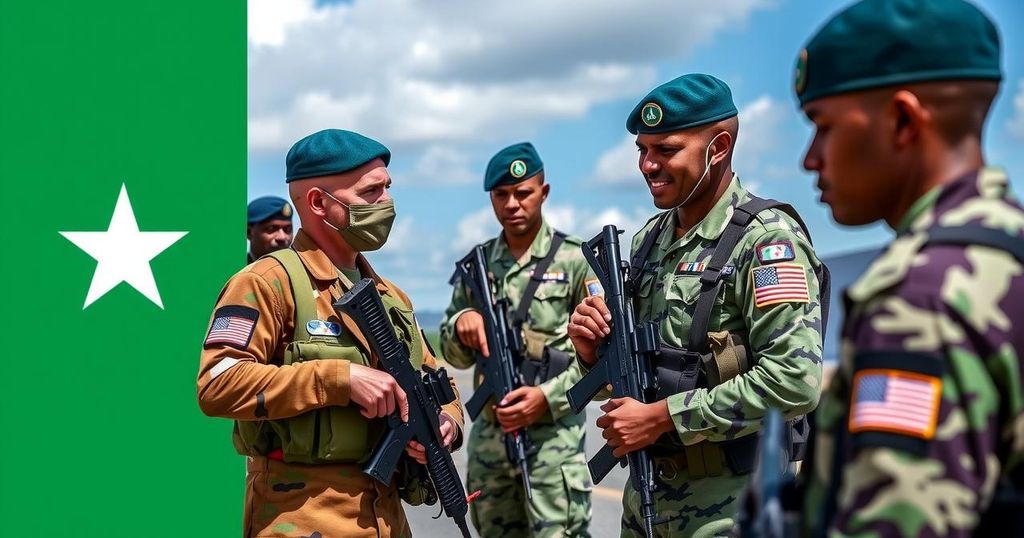The U.S. is seeking to convert the Kenya-led force in Haiti into a U.N. peacekeeping operation in response to increased gang violence that is disrupting air traffic in Port-au-Prince. The proposal follows intensifying violence and significant political turmoil, with current police presence being critically low and further funding required. Despite U.S. financial commitments, concerns from Russia and China present obstacles to the resolution’s approval.
The United States is intensifying its efforts to convert the Kenya-led multinational force in Haiti into a United Nations peacekeeping mission due to increasing gang violence that has paralyzed air traffic to Port-au-Prince. Initially proposed in September to ensure sustainable funding for the force, the U.S. contends that the escalating gang attacks underscore the need for a U.N.-backed intervention. Violence surged last Sunday, coinciding with the political turmoil stemming from the dismissal of the interim prime minister by Haiti’s transitional council. Current U.N. estimates suggest that gangs exert control over approximately 85% of the capital, exacerbated by recent assaults that temporarily closed the country’s main airport. In this context, the U.S. has sought approval from the 15-member U.N. Security Council to initiate a transformation process for the force, although objections from Russia and China have emerged regarding the proposed resolution. The multinational force was initially projected to deploy 2,500 international police, yet only about 430 personnel are currently present. Kenya is set to contribute additional troops, while the U.N. trust fund financing the multinational initiative remains critically underfunded, with only $85.3 million of the pledged $96.8 million received. Despite the U.S. commitment of $300 million, the total funds fall significantly short of the $600 million estimated necessary for a full deployment over the course of a year. The escalation of gang power in Haiti, marked by violence and a spiraling human rights crisis, has led to civilian unrest and the emergence of vigilante groups. In light of the historical context of foreign interventions in Haiti, which often faced skepticism from the local populace, the future of a U.N. deployment remains uncertain amid mixed sentiments regarding such international military presence in the country.
Haiti is currently grappling with a severe crisis marked by rampant gang violence following the assassination of President Jovenel Moïse in 2021. This violence has precipitated a demand for international intervention. A Kenya-led multinational force has been deployed to assist the Haitian National Police, but challenges arise regarding resources and effective deployment. Previous U.N. peacekeeping missions have faced criticism and allegations of misconduct, contributing to skepticism about the efficacy of foreign military presences.
In conclusion, the U.S. is actively pursuing the transformation of the Kenya-led force in Haiti into a U.N. peacekeeping mission, driven by alarming gang violence in Port-au-Prince. Despite the urgent need for intervention as indicated by ongoing assaults and political instability, financial limitations and geopolitical objections complicate the path forward. The response of the international community and the local population will be crucial in determining the success of future efforts in stabilizing Haiti.
Original Source: apnews.com






